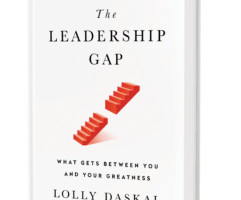Why Big Projects Fail — and How to Give Yours a Better Chance of Success
Harvard Business Review
NOVEMBER 3, 2023
There are five reasons that large projects fail. Wrong projects are ones that defy conventional business rationale, creating outputs that either few people want, that add little to no real value, or that undershoot the desired benefits because they are so difficult to achieve. A second reason is unreasonable constraints — when the effort doesn’t have adequate funding, people, time, or other key inputs.


























Let's personalize your content